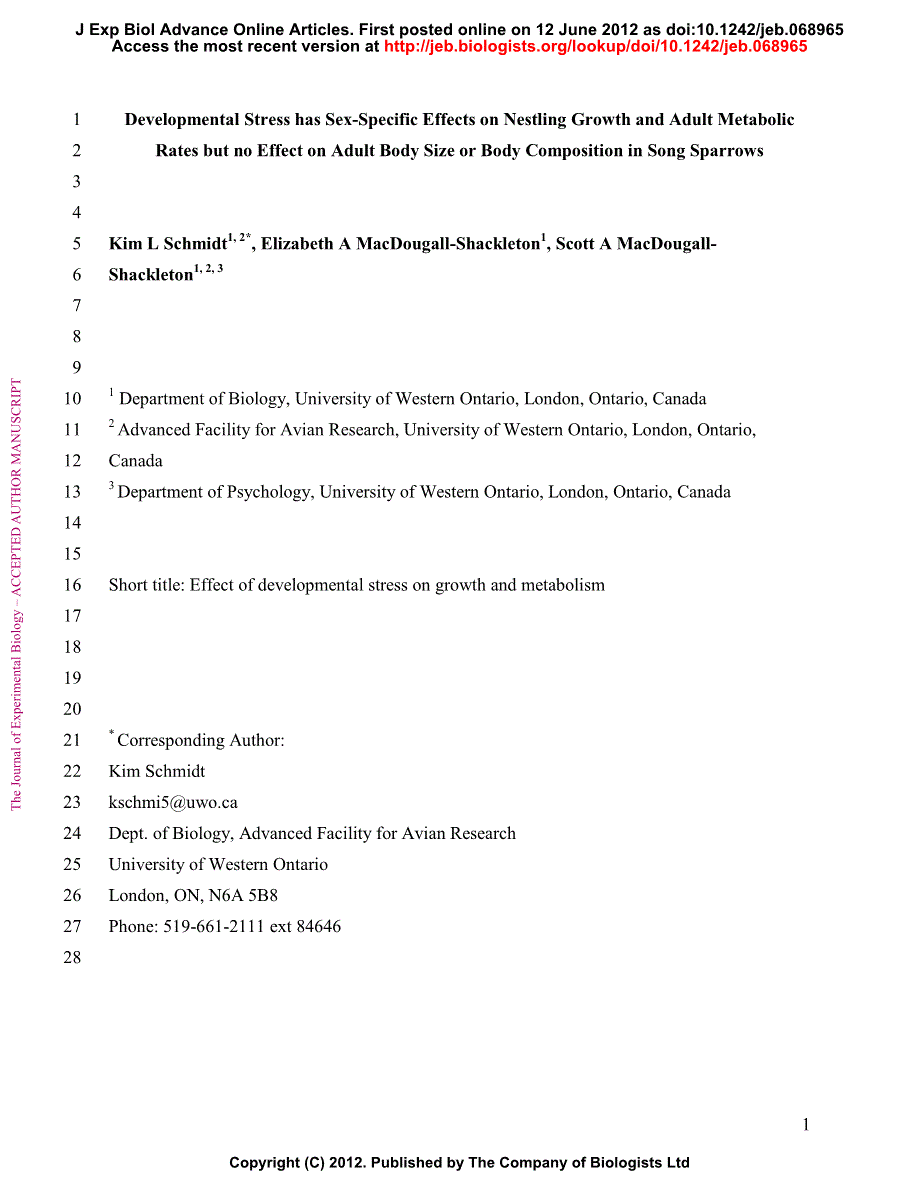Summary
Variation in the pre- and postnatal environments can have long-term effects on adult phenotype. In humans and other animals, exposure to stressors can lead to long-term changes in physiology. These changes may predispose individuals to disease, especially disorders involving energy metabolism. In addition, by permanently altering metabolic rates and energy requirements, such effects could have important fitness consequences. We determined the effects of early-life food restriction and corticosterone (CORT) treatment on growth and adult body size, body composition (assessed via quantitative magnetic resonance), and metabolic rates in a songbird, the song sparrow (Melospiza melodia). Nestlings were hand-raised in captivity from 3 days of age (d3). Treatments (ad libitum food, food restriction, or CORT-treatment) lasted from d7–d60. Both experimental treatments had sex-specific effects on growth. In the nestling period, CORT-treated males weighed more than controls, whereas CORT-treated females weighed less than controls. Food-restricted males weighed the same as controls, whereas food-restricted females weighed less than controls. Both experimental treatments also had sex-specific effects on standard metabolic rates (SMR). Females exposed to food restriction or CORT treatment during development had higher SMRs in adulthood than control females, but neither stressor affected SMR in males. There were no effects of either treatment on adult body size, body composition (lean or fat mass), or peak metabolic rates. Therefore early-life stress may have sex-specific programming effects on metabolic rates and energy expenditure in song sparrows. In addition, both treatments affected nestling growth in a manner that exaggerated the typical sex difference in nestling mass, which could provide male nestlings with a competitive advantage over their sisters when developing in a poor quality environment.








